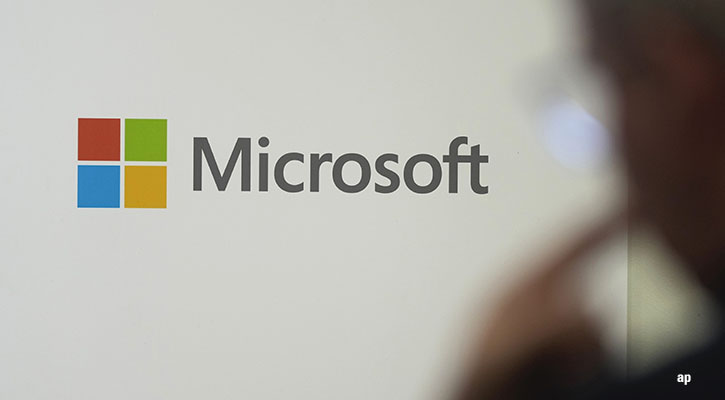Note: Pat Dorsey is the former director of equity research at Morningstar. He is now the president of Sanibel Captiva Investment Advisers.
Transcript:
Jason Stipp: I am Jason Stipp for Morningstar. Risk-on, risk-off. The macro headlines seem to be driving the markets up and down on a daily basis, understandably frustrating bottom-up investors. So what should investors do about these trends, how long will they last, and will fundamental investing make a comeback? Here with me to offer his take is Pat Dorsey, the president of Sanibel Captiva Investment Advisers.
Pat, thanks for being here.
Pat Dorsey: Always happy to be here, Jason.
Stipp: You do read risk-on, risk-off. You do see the headlines out of Europe. The markets move in response to European Central Bank meetings. They move another way when [Federal Reserve chairman Ben] Bernanke says that he is thinking about quantitative easing. And [they move] another way when the other governors said, "No, no, we don't want to do quantitative easing." As a fundamental bottom-up stock-picker, you've made your bets, and you see your stock prices swinging around. How do you keep from being frustrated and throwing your hands up and just saying macro is the new rule of the market?
Dorsey: Turn off the TV. That will be thing one. I have been in this business 15 years. I've never had a TV in my office, so that would be one. Just filtering out that noise I think really does help a lot. Keeping an eye on corporate earnings and cash flows as opposed to daily headlines, and just taking a step back and looking at the big picture. I mean think about right now, we're sitting here in July. We've had lots of ups and downs: a fabulous first quarter, and a May that lots of people would like to forget. And every day was frustrating with these different announcements. The S&P is up 9.5% so far this year. That's not so bad.
Stipp: One thing, though, is that we do know that in Europe, in the eurozone, those problems are not short-term problems; they are going to take a long time to fix. So, then my question is if I have to be patient as a fundamental investor given a lot of this loud noise that we're hearing, how long? Are we going to be stuck with some of this risk-on, risk-off for a while? Is it going to be with us here?
Dorsey: Is the question actually "Make the pain go away, Pat?" Calgon, take me away. Again you're getting paid to be patient there. The European indexes overall are yielding 3.5%-4.0%, I want to say, depending on kind of which way you look at it, about 9 times earnings. So, if I'm paying 9 times earnings and get 4% yield, will I wait? I can wait a little while. I mean I can get paid to be patient, and good companies do better in bad times. I remember vividly talking to a very intelligent money manager who manages mainly kind of European or non-U.S. smaller companies, midsize companies, and he said, "Pat, good companies love it during tough times because they find the competition. They step on their neck, and they grind them into the dirt." And I said, "Well, that's not a very pleasant image, Peter, but it's true." Good businesses take share during tough times, and you can also go back to the old quote from Shelby Davis, founder of the Davis Funds that you make all your money in bear markets, you just don't know it at the time.
Stipp: Another thing that I think tempts investors when macro issues are basically dominating the news is they want to try to trade on those macro issues. They want to try to predict them and make money off of them. Would you advise something like this?
Dorsey: Big pitch right down the middle, right down the middle, thank you. Here is the thing, all I would say is that you want to invest where you think you have a competitive advantage; you want to invest where there is less competition. And there are a lot of dollars chasing those short-term returns, trying to predict what Bernanke will say, what [Italian prime minister] Mario Monti will say, what the ECB will say, whatever it might be. There are a lot of very smart people, with a lot of capital behind them chasing those returns. So outthinking them, I am not going to say it's impossible, but it's pretty darn hard, whereas there is not a lot of patient capital out there. And so, frankly the market for long-term returns is just less efficient than the market for short-term returns. And I always want to play in the least efficient market possible.
Stipp: I think the other thing to keep in mind is we can look say, "Well there are problems in Europe. China looks like it's slowing down. So I am going to avoid Europe. I am going avoid China. I'm going to look for wherever the news is rosy, and then I am going to invest there and thus avoid all the risks." But that's leaving out one big thing that begins with the letter V.
Dorsey: Valuation, exactly. I mean you pay a high price for cheery consensus as [Warren Buffett] would say. So you're seeing Costco at 20 times earnings. You are seeing Whole Foods and Chipotle at very high valuations because they have nothing tied to Europe or China. But then you even look at say a company that is a play on Chinese consumption as opposed to Chinese investment, which is where the big trends are moving, Yum Brands, for example. KFC is growing gangbusters in China, but you are paying 20 times earnings for that, too. And so again, you don't get paid for nothing, and you are going to take some kind of risk no matter where you go.
Stipp: And I think this valuation question is also one of the reasons why the way economies move and the way stock markets in those economies move are not always in the same direction?
Dorsey: Yes. It's a great point. There have been tons and tons of academic research on this, and just simple intuition would tell you the same thing that valuations are a much stronger driver of equity returns in either corporate earnings growth or macroeconomic growth. There is almost nothing that affects your future returns more than the price you pay when you make the investment. That blows away earnings growth, macro growth, anything else as a determinant of future returns.
Stipp: My last question for you, Pat, although the economy and the headlines can create a lot of noise for us, it's also not something that you would necessarily want to ignore. You are modelling out a company. You are trying to figure out how much money it's going to make in the future. Surely the economies in the markets where it operates have some role to play. So how do you think about the economy in a prudent way as you are trying to assess a company?
Dorsey: It's context; it's like the weather. With the weather you can make reasonable forecast. It's going to be wrong sometimes, but you can make reasonable forecast. Is today going to be really hot? Is today going to be rainy? I mean you can do that with a reasonable degree of confidence, unless you live in Chicago, in which case you can have a winter with no snow, like we did last winter. But does that stop you from going to work every day, or does it stop you from living your life? No, you adjust for it.
If you thought China was going to grow at 9%, now it's going to grow at 7%, you say "OK, maybe I'll pay less for this asset than I would have paid otherwise." If China is shifting from an investment-led model to a consumption-driven model, you think about "OK, what's in the demand on commodity producers coming out of Australia?" That's probably going to be a decent bit of an impact and so the outlook for those companies isn't as robust today as it was five or six years ago. So it does matter, but I would say, it is not the end-all be-all that the financial media would have you think.
Stipp: All right Pat. Well, thanks for helping us maintain some sanity in this risk-on, risk-off macro-driven environment and for being here today.
Dorsey: Thanks so much, Jason.
Stipp: For Morningstar, I am Jason Stipp. Thanks for watching.























